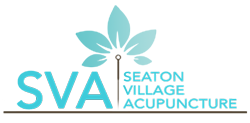April is Alcohol Awareness Month. It’s a good time to ask yourself: what’s your relationship with alcohol?
Alcohol offers zero health benefits, yet people across the globe continue to consume it. Though it’s addictive and highly toxic, it plays an integral role in many aspects of American life: celebrations, dinner parties, even sporting events.
Alcohol can be detrimental to every bodily system, disrupts sleep and affect how your skin looks. It costs money, can negatively impact relationships and lower your job performance.
You don’t have to suspect an abusive relationship with alcohol to be curious about how drinking less might impact you. Maybe you only drink four drinks per week. Maybe drinking is a habit you’ve developed, maybe you want to improve your health, maybe you’ve said something to a loved one while under the influence that you now regret.
In the United Kingdom, there’s a trend toward Dry January, a 31-day alcohol-free challenge to help reset your relationship with alcohol. Of participants, 71% report better sleep, 67% had more energy, 58% lost weight and 88% saved money.
The thing is, when you decide to stop drinking, societal and peer pressure can destroy even the best of intentions. That’s why a community of support can be so empowering.
Ruari Fairbairns is an entrepreneur who successfully reset his relationship with alcohol after challenging himself to a 365-day break from drinking. For him, the key was having a good friend tackle the alcohol-free challenge with him. The two weren’t abusing alcohol when they decided to take the challenge—but enjoyed going out to pubs two or three nights a week.
After 12 months without drinking, Ruari found his new freedom from alcohol so enlightening that he took the community support idea and started One Year No Beer, a project offering support and encouragement to those who want to stop drinking for a specified time period, to discover how it will affect their lives. Those who participate in alcohol-free challenges realize some fantastic things:
- 92% are much happier
- 73% enjoy dramatically improved sleep
- 73% lose weight
- 74% reduce anxiety levels
They also boosted productivity and motivation, looked better and had more money in the bank.
One Year No Beer is aimed toward a different audience from Alcoholics Anonymous. The goal isn’t to quit drinking forever, although some people may choose that path. The purpose of an alcohol-free challenge is to reset your relationship with alcohol by taking a break from it to develop healthier habits and ways to relax and socialize with friends.
After completing a 90-day alcohol-free challenge, you will learn a lot about yourself, your friends, your health—and will likely never drink the same way again.
Use the following 7 strategies to reduce the influence of alcohol in your life:
- Start an Alcohol Journal
Got a notebook, calendar or cell phone? Start writing down how often and how much you drink. Sometimes this small change can reduce your number of drinks per week—knowing you’ll need to record it can make the difference between “just one more” and “I’ll call it quits for the night.” Small, incremental changes in reducing alcohol intake can make a big difference in your health.
- Set a Quota
Determine in advance how many nights a week you will drink, and how many drinks you’ll consume. And stick to it. While no amount of alcohol is beneficial to your health, a reduction in current intake will be an improvement.
- Know the Standard Drink Sizes
Giant wine glasses and growlers can make calculating actual alcohol consumption tricky. Familiarize yourself with standard drink sizes, and do the math when it comes to alcohol content and healthy pours. When you cheat, you’re only cheating yourself.
- Establish an Alcohol-free Timeline
Recruit a friend to undertake this journey with you, and set a specific goal: 28 days? 90 days? 365 days? If you’re seeking a community, consider joining One Year No Beer, a membership-based program that provides mental hacks, social strategies and encouraging suggestions on temporarily abstaining while you build new, healthier habits.
- Explore Alternative Activities
If you typically visit bars or breweries to socialize, break those habits by expanding your options. Join a sports league and play kickball or compete on an adult swim team. Take a cooking class or dance lessons, host a game night, form a mountain biking club or invite friends to Saturday morning coffee. Here’s an Aha! moment: Pretty much any activity that you can do while drinking alcohol can also be done without drinking alcohol.
- Identify your Triggers
Certain situations, places or people can increase your urge to drink even when you’ve decided not to. Avoid these, especially as you embark on your challenge. If you typically have a drink after work, schedule another activity at that time: go to a movie, go to the gym or spend time with your kids.
- Plan Ahead with Drink Refusal Skills
Pressure to drink from friends or colleagues can be tricky. Recognize and identify these situations, avoid them if possible, and plan ahead with coping mechanisms to outmaneuver them when unavoidable. When you’re going somewhere where alcohol will be served, practice a firm, “No, thanks!” as a response when you’re offered a beverage. Or “stealth drink” by ordering seltzer water with a lime wedge. If pressure becomes overbearing, remember that you’re free to leave. Here’s a handy tutorial on building your drink refusal skills.
By tackling a 28-day, 90-day or 365-day alcohol-free challenge, you will change your relationship with alcohol, and then it’s up to you to determine whether you’ll continue to drink. Consider this fascinating fact from One Year No Beer: After completing the 90-day challenge, 87% of members choose to continue an alcohol-free lifestyle. Are YOU up for the challenge?

